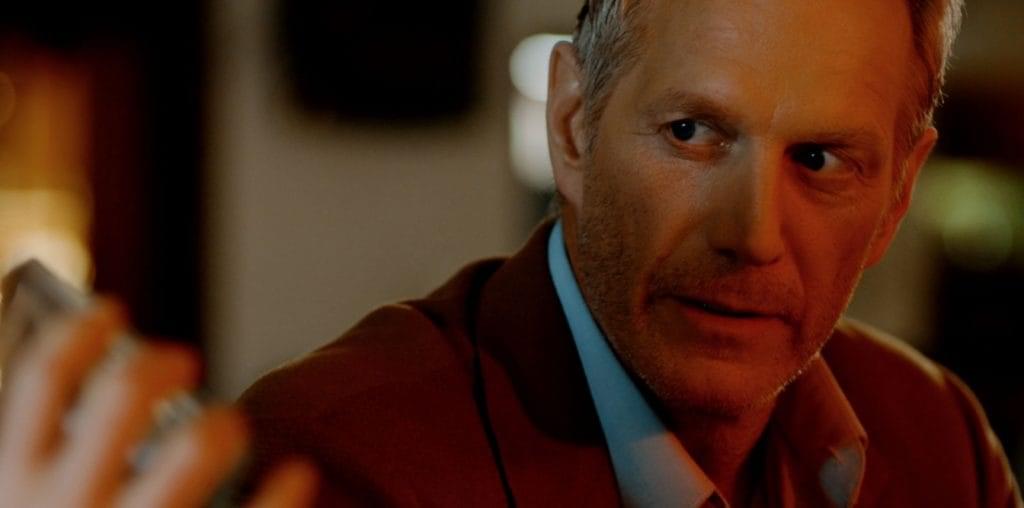
17 Blocks is an intriguing and gradually affecting documentary following Cheryl Sanford and her three children (Denice, Smurf, and Emmanuel) in their disadvantaged Washington D.C neighborhood over the course of two decades. Since 1999, the whole family took turns to record their everyday lives and surroundings from moments of joy and fun to difficulties and devastating losses. We see how they all deal differently with their traumas nowadays and their roads to recovery.
Their stories are extremely emotional, and it is hard to believe that their real tragedies are not a work of fiction, especially since, interviews aside, it plays in chronological order and edited almost like a feature. 17 Blocks also ironically checks all the boxes of a drama about Black communities struggling with poverty, violence, addiction, and acceptance.
Between older home-video fragments, emotional interviews with family members on camera, or playing as V.O. over past footage, are woven together to give viewers some context and illustrate how the subjects have changed like everything else around them.
“…the whole family took turns recording their everyday lives and surroundings, from moments of joy or fun to difficulties and devastating losses.”
Although, due to the poor quality of the recordings (and the evolution of technology) the earlier videos are sometimes not easy to look at and it is hard to follow every detail. At the end of a passage, consisting of various scenes of Emmanuel self-taping his daily life, he professes what can be seen as a somber presage about people he knew, who were being shot senselessly. He wisely and optimistically hoped to grow away from his situation by becoming rich and educated. We then see him out with a friend one night filming a teenager screaming for help while being attacked violently in the street. This disturbing scene makes one wonder why the filmmaker did not mask the identities of the victim or the juvenile perpetrators.
Which leads us to one of 17 Blocks main issue as the film is as intimate as it can be, but at times, feels like an invasion of privacy and, likewise, it makes one question the legality of this exercise. One could only wish some scenes were edited out; not as a censorship act but a show of decency.
For example, few scenes were morally questionable, such as the one showing a high-on-drugs, catatonic mother boorishly lying in a bed unintentionally flashing her underwear as her young son is making fun of her. Surely it is a sad reality for many kids exposed to these kinds of unfortunate behaviors, but considering she is also a protagonist, and this might have been one of her lowest moments among others captured on tape, they could have chosen something else instead or simply cut this out.
Another problematic example happened earlier on in the movie. We see a youngster writing a list of girls he’s been with, and he speaks in degrading fashion about some of these girls (we could clearly see their unblurred names on paper) who are now women probably not too happy being described as “ugly and fat” in a documentary for the whole world to see.
Similarly, a couple of time in the older footage we see different members of the family actually doing hard drugs on camera. First, viewers will ask themselves, why would one be okay being filmed doing something illegal and then give permission to make these incriminating images public. Secondly, viewers will not be wrong to wonder if showing these images was that crucial to paint the picture of this household quotidian, particularly considering all parties involved go into details about their ordeals with drugs, the prices they had to pay (which also include jail time) and how it destroyed their lives.
“…viewers unfamiliar with this reality, will understand that their conditions or predicaments are, in a bluntly banal way, products of their inescapable environment.”
These three scenes did not necessarily bring something new to the narrative and could be incorporated in a less disgraceful manner but, in contrast, scenes possibly shocking or troublesome to some were tremendously impactful and added something invaluable to the story.
As gruesome or graphic as it is, the simple shot of a cat wandering in a hallway where the blood of a recently shot person is splattered on the floor and walls, to then be thoroughly cleaned by the deceased sister, seems necessary for viewers to understand this common yet wretched truth.
In movies, there is a “happy ending” of sorts, and the protagonists find paths to redemption and peace in bettering themselves through therapy, detox, love, faith and keeping precious memories that will keep on living not only in their minds but on film and now as 17 Blocks.
However, away from cinematic dramatizations about people like the Sanford, viewers unfamiliar with this reality, will understand that their conditions or predicaments are, in a bluntly banal way, products of their inescapable environment.
One cannot deny that, despite all its flaws, 17 Blocks is a very special and poignant film addressing many important and pressing matters that should be fixed or seriously addressed by politicians and the government only 17 blocks away from where the story unfolds.
By doing so, it ultimately asks the same question that a preacher asked at Emmanuel’s funeral: “Why do bad things happen to good people?” and it provides a raw answer through this lens.

17 Blocks (2019) Directed by Davy Rothbart. Written by Jennifer Tiexiera. 17 Blocks has screened at the 2019 Tribeca Film Festival.
5.5/10


[…] Tallerico hints at, but still finds that the film “packs a potent emotional punch.” But Film Threat‘s Hanna B is more bothered by the “poor quality” of the earliest recordings […]
[…] at, however nonetheless finds that the movie “packs a potent emotional punch.” However Film Threat‘s Hanna B is extra bothered by the “poor quality” of the earliest recordings […]